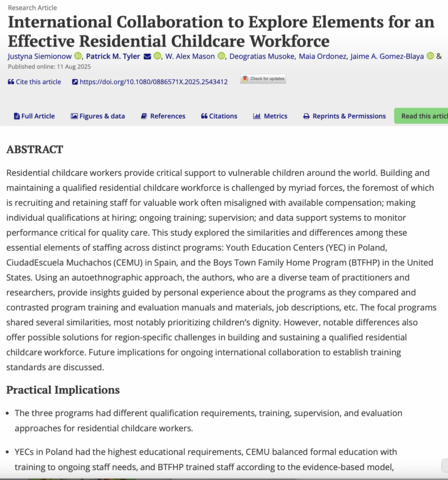Residential childcare workers provide critical support to vulnerable children around the world. Building and maintaining a qualified residential childcare workforce is challenged by myriad forces, the foremost of which is recruiting and retaining staff for valuable work often misaligned with available compensation; making individual qualifications at hiring; ongoing training; supervision; and data support systems to monitor performance critical for quality care. This study explored the similarities and differences among these essential elements of staffing across distinct programs: Youth Education Centers (YEC) in Poland, CiudadEscuela Muchachos (CEMU) in Spain, and the Boys Town Family Home Program (BTFHP) in the United States. Using an autoethnographic approach, the authors, who are a diverse team of practitioners and researchers, provide insights guided by personal experience about the programs as they compared and contrasted program training and evaluation manuals and materials, job descriptions, etc. The focal programs shared several similarities, most notably prioritizing children’s dignity. However, notable differences also offer possible solutions for region-specific challenges in building and sustaining a qualified residential childcare workforce. Future implications for ongoing international collaboration to establish training standards are discussed.

